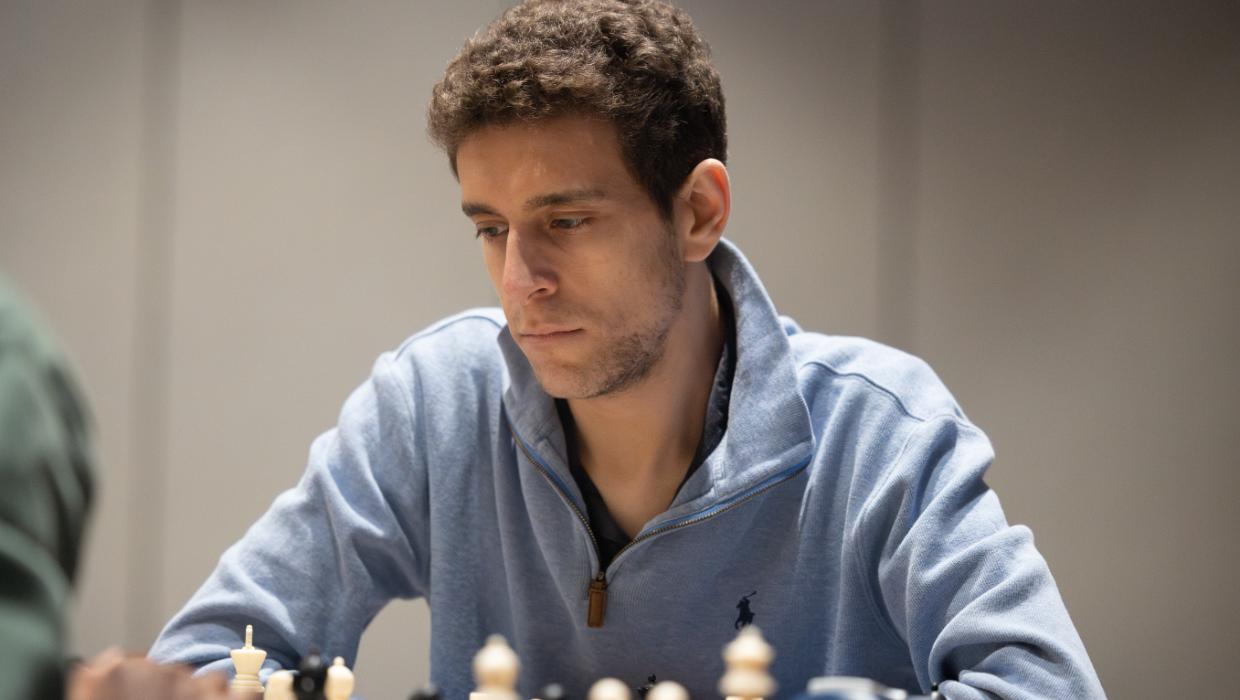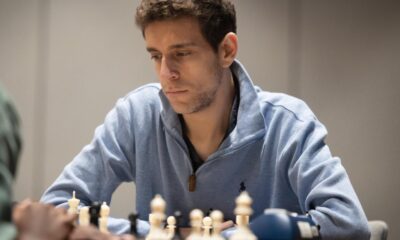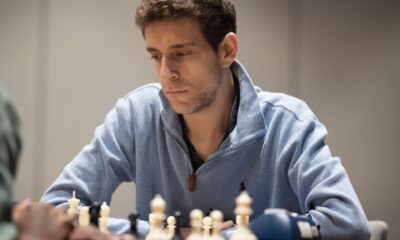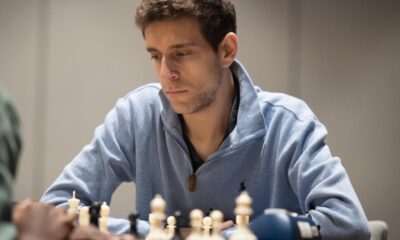Sports
Chess Community Mourns Death of Daniel Naroditsky Amid Cheating Scandal

The chess world is reeling from the tragic death of grandmaster Daniel Naroditsky, whose passing is shrouded in controversy surrounding cheating allegations that have plagued the sport. Naroditsky, a prominent player and commentator, died on May 2024, and authorities are investigating the cause, which may involve suicide or drug overdose according to an incident report. His death has ignited a discussion about the impact of unfounded accusations within the chess community.
In his final live stream, which lasted nearly two hours, Naroditsky appeared exhausted and emotionally drained. He was seen rubbing his temples and muttering to himself as he prepared for another game. His friend, Peter Giannatos, who was present during the stream, expressed concern for Naroditsky’s well-being, urging him to take a break. A few days later, when Naroditsky failed to respond to messages, Giannatos and another friend found him unresponsive in his home in Charlotte, North Carolina.
Naroditsky, known as Danya, was a celebrated figure in chess, having achieved grandmaster status at 17 and becoming a popular live streamer. His legacy extended beyond his competitive achievements; he was respected for his efforts to make chess accessible to a broader audience. However, he had been battling the emotional toll of cheating accusations leveled by former world champion Vladimir Kramnik. For over a year, Kramnik had publicly questioned Naroditsky’s integrity, prompting widespread discussion about the damaging effects of such allegations.
Giannatos remarked, “It’s hard to equate what somebody says to somebody dying,” emphasizing that Kramnik’s accusations caused Naroditsky significant emotional distress. The chess community is grappling with the consequences of these allegations, which many view as baseless. Some members have called for the International Chess Federation (FIDE) to take action against Kramnik for his public statements, particularly in light of Naroditsky’s death. FIDE recently announced an investigation into Kramnik’s comments, but critics argue that the response has been inadequate.
The fallout from Naroditsky’s death has highlighted a darker side of chess, a sport that has seen a surge in popularity during the pandemic, leading to lucrative tournaments and a vibrant online creator economy. The rise of sophisticated artificial intelligence chess engines has also intensified concerns over cheating, prompting a culture of suspicion that can overshadow genuine talent.
Kramnik, who won world championships from 2000 to 2007, has defended his actions by claiming he is a “fair play advocate.” He contended that his comments were not accusations but rather “argued suspicion” regarding the possible use of chess engines by players, including Naroditsky. Following Naroditsky’s death, Kramnik extended condolences but criticized attempts to link his name to the tragedy, asserting that such claims lack moral grounding.
The chess community has reacted with a mixture of grief and anger. Online platform chess.com, where Naroditsky had built a large following, took action against Kramnik’s statements, imposing sanctions. Danny Rensch, the site’s chief chess officer, expressed his frustration with the lack of response from FIDE, stating, “We were accused of trying to control the conversation… This is crossing a real line, and this is not okay.”
Naroditsky’s influence extended beyond his chess skills. He was an eloquent communicator who wrote extensively about the game and worked to engage newcomers. Friends recall his dedication to helping others improve their skills, a quality that set him apart in a competitive landscape. Giannatos noted, “Daniel wasn’t like that. He treated everyone with respect and as a human being.”
The issue of cheating in chess is not new. In 2022, world champion Magnus Carlsen withdrew from a tournament due to suspicions surrounding his opponent, Hans Niemann, who had admitted to past online cheating. The controversy led to an investigation by FIDE, resulting in minor sanctions against Carlsen. Such incidents have fueled ongoing debates about how to effectively manage cheating allegations while protecting players’ reputations.
As the chess community mourns the loss of Naroditsky, the implications of his death may resonate far beyond his individual circumstances. The pressure of public scrutiny and the rapid spread of accusations can have profound effects on players’ mental health. Experts stress the need for a balanced approach to addressing cheating claims while ensuring that the emotional well-being of players is prioritized.
In the wake of this tragedy, many are calling for reforms within the chess community. Some have proposed third-party investigations into allegations of cheating, while others have initiated petitions seeking to strip Kramnik of his titles. The chess world stands at a crossroads, grappling with the legacy of a talented player whose life was overshadowed by controversy and the urgent need for a supportive environment free from unfounded accusations.
-

 Sports2 months ago
Sports2 months agoNetball New Zealand Stands Down Dame Noeline Taurua for Series
-

 Entertainment2 months ago
Entertainment2 months agoTributes Pour In for Lachlan Rofe, Reality Star, Dead at 47
-

 Entertainment4 weeks ago
Entertainment4 weeks agoNew ‘Maverick’ Chaser Joins Beat the Chasers Season Finale
-

 Sports2 months ago
Sports2 months agoSilver Ferns Legend Laura Langman Criticizes Team’s Attitude
-

 Sports3 days ago
Sports3 days agoEli Katoa Rushed to Hospital After Sideline Incident During Match
-

 Politics1 month ago
Politics1 month agoNetball NZ Calls for Respect Amid Dame Taurua’s Standoff
-

 Entertainment2 months ago
Entertainment2 months agoKhloe Kardashian Embraces Innovative Stem Cell Therapy in Mexico
-

 World3 months ago
World3 months agoPolice Arrest Multiple Individuals During Funeral for Zain Taikato-Fox
-

 Sports3 months ago
Sports3 months agoGaël Monfils Set to Defend ASB Classic Title in January 2026
-

 Entertainment1 month ago
Entertainment1 month agoTyson Fury’s Daughter Venezuela Gets Engaged at Birthday Bash
-

 Sports1 month ago
Sports1 month agoHeather McMahan Steps Down as Ryder Cup Host After Controversy
-

 World2 weeks ago
World2 weeks agoSevere Winds Hit New Zealand, Over 100 Flights Canceled

















